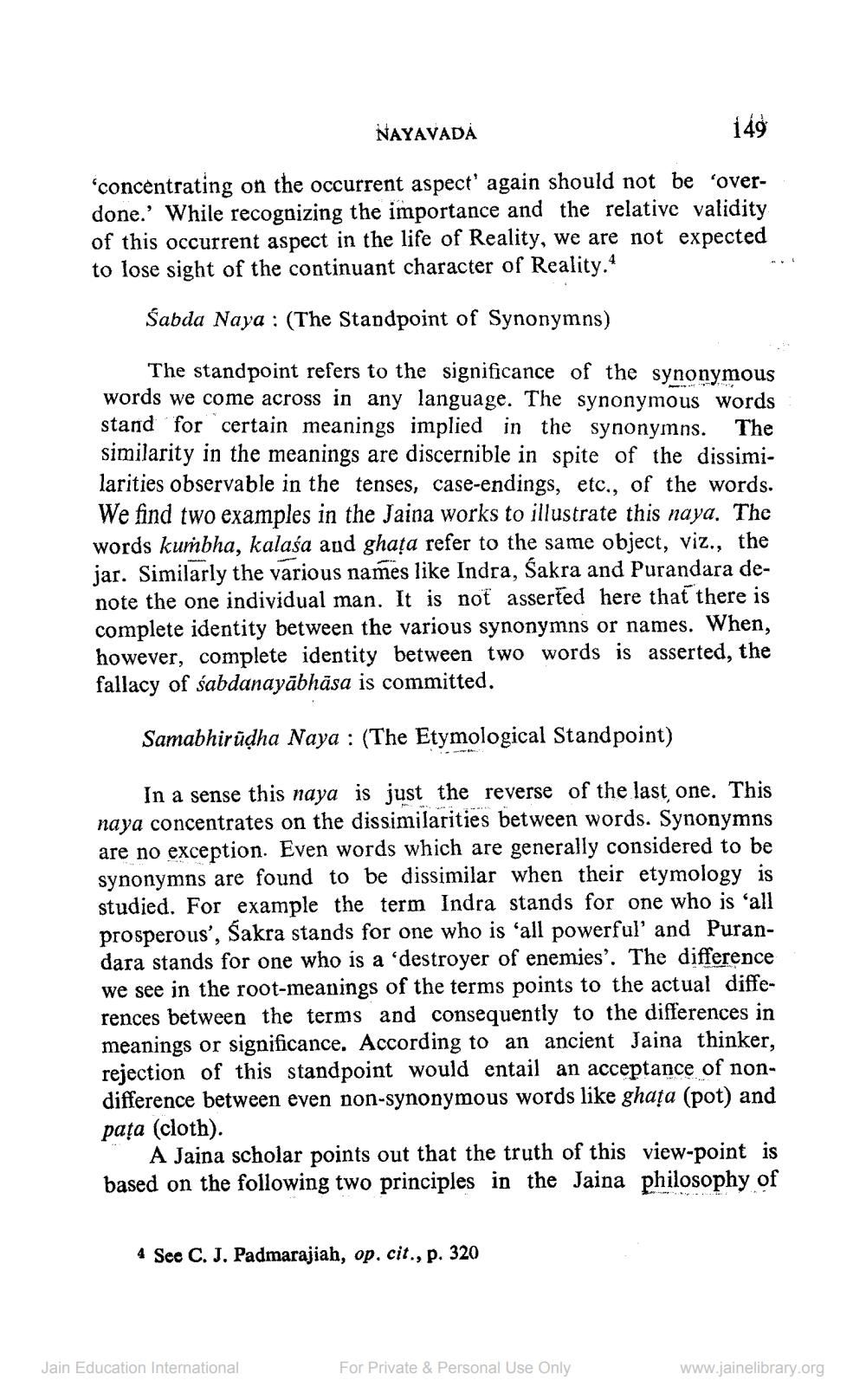________________
NAYAVADA
149
'concentrating on the occurrent aspect' again should not be 'overdone.' While recognizing the importance and the relative validity of this occurrent aspect in the life of Reality, we are not expected to lose sight of the continuant character of Reality.
Sabda Naya : (The Standpoint of Synonymns)
The standpoint refers to the significance of the synonymous words we come across in any language. The synonymous words stand for certain meanings implied in the synonymns. The similarity in the meanings are discernible in spite of the dissimilarities observable in the tenses, case-endings, etc., of the words. We find two examples in the Jaina works to illustrate this naya. The words kumbha, kalaśa and ghața refer to the same object, viz., the jar. Similarly the various names like Indra, Sakra and Purandara denote the one individual man. It is not asserted here that there is complete identity between the various synonymns or names. When, however, complete identity between two words is asserted, the fallacy of sabdanayābhāsa is committed.
Samabhirūdha Naya : (The Etymological Standpoint)
In a sense this naya is just the reverse of the last one. This naya concentrates on the dissimilarities between words. Synonymns are no exception. Even words which are generally considered to be synonymns are found to be dissimilar when their etymology is studied. For example the term Indra stands for one who is all prosperous', Sakra stands for one who is 'all powerful and Purandara stands for one who is a 'destroyer of enemies'. The difference we see in the root-meanings of the terms points to the actual differences between the terms and consequently to the differences in meanings or significance. According to an ancient Jaina thinker, rejection of this standpoint would entail an acceptance of nondifference between even non-synonymous words like ghața (pot) and pața (cloth).
A Jaina scholar points out that the truth of this view-point is based on the following two principles in the Jaina philosophy of
4 Sec C. J. Padmarajiah, op. cit., p. 320
Jain Education International
For Private & Personal Use Only
www.jainelibrary.org




